This final online discussion of the semester is open for comments April 15-28. An overview of these assignments and how you’ll be graded is available here.
The approximate reading time of this post is 12 minutes, not counting any audio media. There are three prompt questions at the end of the discussion to guide your reading.
Embed from Getty Images
We’ll begin this online discussion as you might expect: listening to a piece of music inspired by violence. The Croatian town of Vukovar had been decimated during the Yugoslavian Civil War in 1991 (pictured above in the slideshow of Getty Images). In 1999, American composer Laura Kaminsky visited Vukovar on a peacekeeping mission, unprepared for the level of destruction she saw 8 years after the war, and the devastation weighed on her so heavily that the next time she sat at a piano, the beginnings of this piece emerged. She dedicated her Vukovar Trio to the victims of ethnic cleansing. It’s performed in one movement of connected but contrasting sections, each of which has a vivid subtitle in the score: A Sky Torn Asunder; The Shattering of Glass; Lost Souls; Revenge/Retreat; Death Chorale; River of Blood and Ice; Ghost Chorale; Dance of Devastation
The online music journal New Music Box interviewed Kaminsky and asked her about this work in 2013:
When I was living in Poland and running the European Mozart Academy, we took small groups of chamber musicians throughout central Europe to give concerts. One of the concerts arranged was to go into Vukovar under Human Rights Watch protection and give the first live concert since the official end of the war at the fairly devastated Serb Cultural Center. Going into that devastated war-torn city was really eye-opening and very humbling for all of us. We were really quite taken aback by seeing the destruction. This was three years since the end of the war; people still had no electricity and there were food shortages. It was grim; you could tell that this was not a good place. When I say Vukovar, like I’m talking to you now, to this day I’m seeing this picture in my head. Somehow I had to deal with that picture. I knew I needed to write a piece, and I wanted to write a piano trio, partially because I was living in Eastern Europe and that sound world was so much what I was breathing and hearing every day. I felt like I wanted to write an homage to Shostakovich and his great trio which is such an iconic piece. Then I thought, his Eighth String Quartet is dedicated to the victims of fascism and war; I would dedicate my piece to the victims of ethnic cleansing. I hate to say this, but most Americans don’t read the headlines. It’s history already. I wanted to keep [in people’s minds] the fact that genocide is alive today, so I gave it that title. But I did think about just calling it Piano Trio.
Frank J. Oteri, interview: “Laura Kaminsky: Every Place Has a Story” (New Music Box, October 2013)
The relationship between music and violence isn’t always so straightforward—it’s not just about how violence inspires musical sounds. Music has the power to convey messages—through its words, because of the context where it’s played, because of who’s playing it, and because of our associations with similar musical sounds. (The study of how music is able to convey messages, imply ideas, or communicate subtleties to nuanced listeners is called semiotics.) This week, we’re thinking about how violence is enhanced by music, inspires music, and allows music to take on new meaning. The focus will be on 20th– and 21st-century wars (World War II, Vietnam, Iraq/Afghanistan post-September 11th), and we’ll think about four different ways that music intersects with violence: nationalism, the human toll of war, music as protest, and music as war.
I. Nationalism and patriotism: Music to unite the people
Nationalism (celebrating one’s nation) was a common political and musical theme in the 19th century. Nationalistic music was composed and celebrated all across Europe as the nations that populate the map as we now know it were being formed: Italians rallying around the king of a newly unified Italy (Vittore Emanuele II) and using the operas of Giuseppe Verdi (1813-1901) to do so, Antonín Dvořák (1841-1904) composing music that celebrated his homeland of Bohemia (now the Czech Republic), Edvard Grieg (1843-1907) doing the same in Norway, and Jean Sibelius (1865-1957) doing the same in Finland.
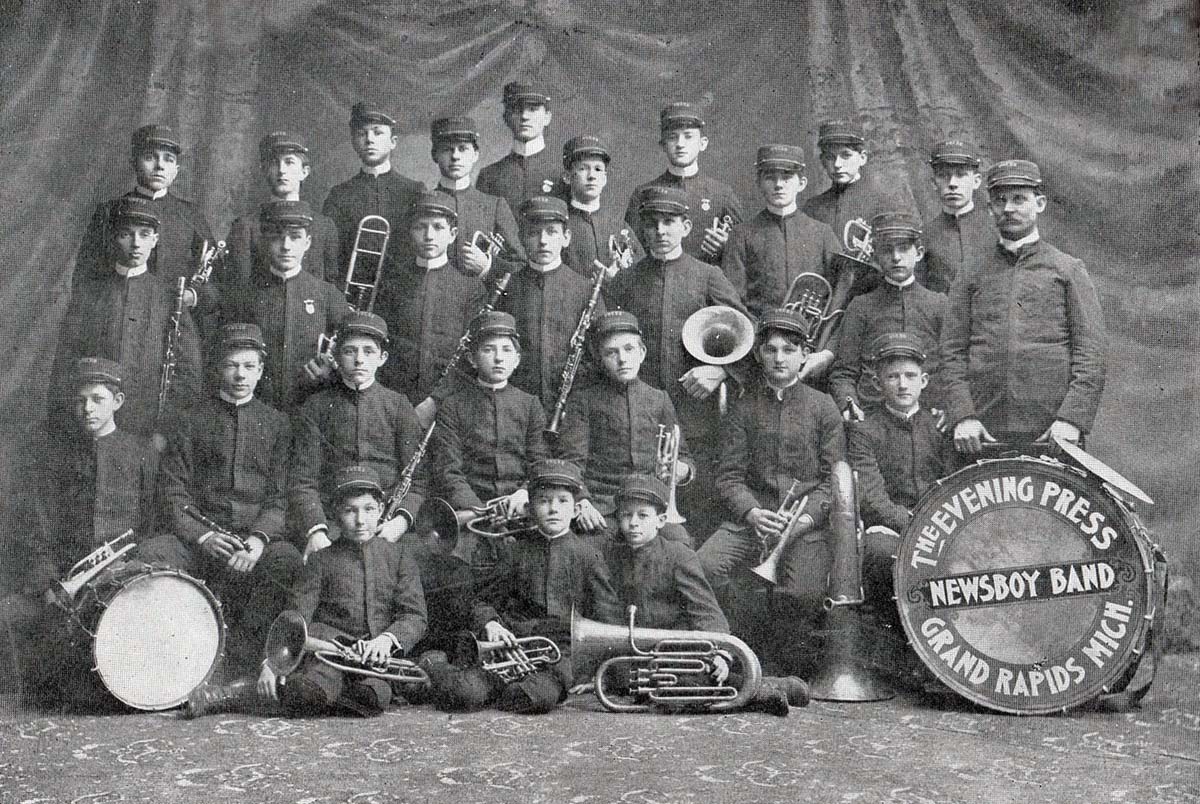
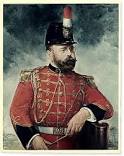
The same thing happened in the United States, particularly in the form of local town bands that played marches in parades after the Civil War. John Philipp Sousa (1854-1932), for example, made his career composing 137 marches and serving as Director of the US Marine Band and later his own professional band, the Sousa Band. One of his marches, The Stars and Stripes Forever (1896), was named the national march of the US in 1987.
Nationalistic music is often simplistic, with clear, obvious, and steady rhythms—things that can get a crowd of people clapping along, making them musically united as long as the music sounds. In music of this style, melodies are often clearly differentiated in the texture and are characteristically rousing, encouraging, or uplifting. The form of a Sousa march always concludes with a polyphonic texture [3:58 in the above video], allowing the composer to add depth and nuance of the idea he’s celebrating (i.e., America) by simultaneously layering different melodies on top of each other. On top of that, marches like these were played as part of larger patriotic displays, with flags waving, veterans marching, and stirring speeches—all things that resonated with and amplified the music’s message.
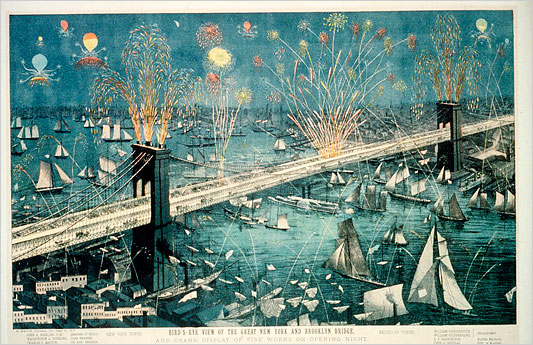
The last piece of nationalistic music I’ll leave you with is Toby Keith’s Courtesy of the Red, White, and Blue (2002), a song written during peak post-9/11 fervor that captures the ideologies of American protectionism, American exceptionalism, and anti-foreigner sentiment. It encapsulates everything we can expect from propaganda-music: it’s catchy and simple, it leaves no room for subtlety or nuance (“We’ll stick a boot in your ass / It’s the American way”), and it spreads a particular idea among a group for political purposes. The imagery of the video (gently billowing American flags, cowboy hats and cut-off sleeves of the southern working class, US soldiers in battle fatigues, and guns) reinforces the propagandist message.
These are all examples of propaganda: music that conveys a political message, and this makes sense in wartime. In a time of crisis and stress on the population, anything that leaders or the military can do to build resolve and support for the long road ahead is a smart strategy. Music’s effectiveness as propaganda (i.e., manipulation towards political ends—the composer Christian Wolff (b. 1934) goes so far as to say that “All music is propaganda music.”) is based on the power of music to incite particular feelings and thoughts in your mind, especially when coupled with context, power, or a threat.
II. The human toll of war
The Crusades
Europeans have been fighting over the Middle East and fighting the people who live there for centuries. The Crusades were a series of wars fought by Europeans on behalf of the Catholic Church and the Western world for nearly two centuries (1095-1291).
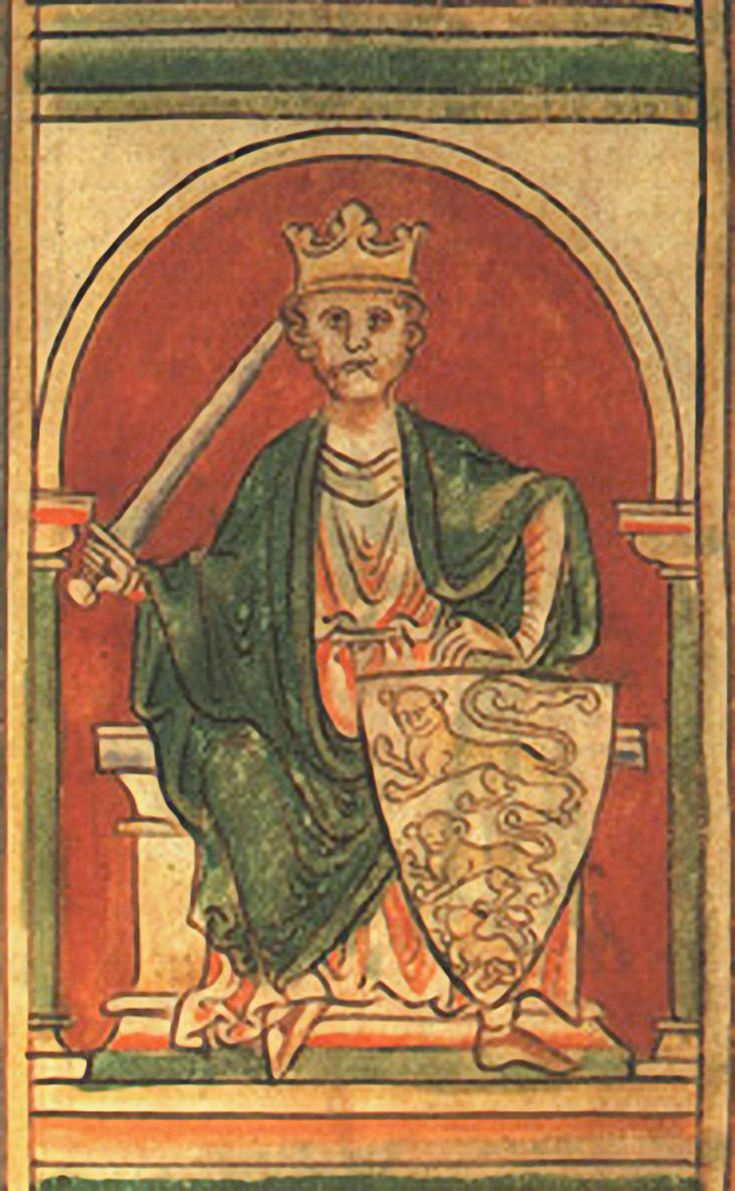
These wars resulted in thousands of deaths, great tales and fables of bravery, the exchange of goods and ideas from East to West and vice-versa, and, of course, the capturing of prisoners. One such prisoner was the King of England, Richard I, aka Richard the Lionheart (1157-99). He was captured while returning home and held for ransom by Duke Leopold of Austria (1192-94). His traveling and captivity in the Crusades are part of the story of Robin Hood—his brother Prince John held the throne while Richard was away, overtaxing the people of England and generally being an inept ruler (with the help of the Sheriff of Nottingham).
While in captivity, Richard I wrote a song about his sorrow, resolve, and homesickness, “Ja nuls homs pris” (No man who is imprisoned).
No man in prison can tell his tale true
Lest he himself has known what I’ve been through
In writing song he may comfort renew
I’ve many friends but their gifts are few
They’ll bring dishonor for my ransom’s due
These two long winters pastMy noble barons and men surely knew
England and Normandy, Gascon and Poitou
Ne’re would I forsake or be untrue
To any friend; noble, commoner too.
I do not mean to reproach what they do,
Yet I remain held fast
World War II
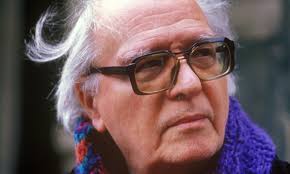
Olivier Messaien (1908-92) was a French composer trained at the Paris Conservatoire. When World War II broke out, he served in a medical unit in the French army but was captured in 1940 and sent to prisoner-of-war camp in Poland called Stalag VIII-A. One of his German guards recognized him and provided Messaien with everything he needed to continue to compose: sheet music, pencils, a piano, and instruments that could be played by the other professional musicians in the camp (clarinet, violin, and cello).
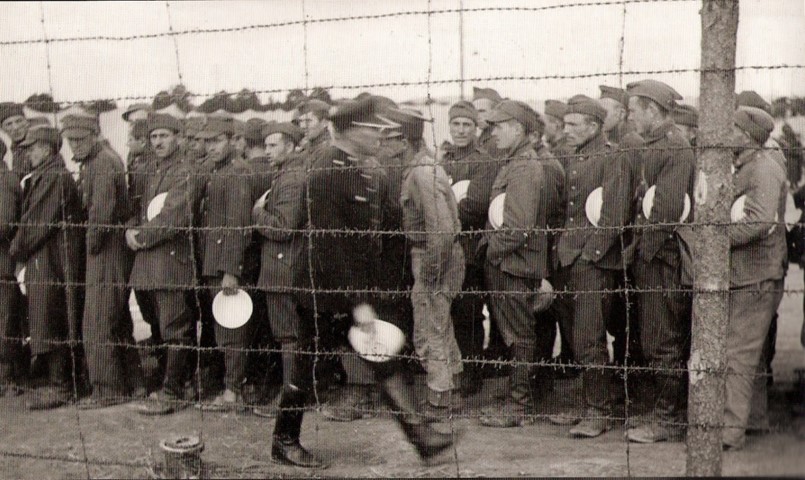
Messaien wrote a work that he called Quatour pour la fin du temps (Quartet for the End of Time)—an ominous and heavy title that reflects the feeling of the entire world coming to an end as much of France was destroyed by the German occupation, as winter settled on the camp, and as the prisoners couldn’t find out whether their families were still alive. Two important factors shape the sound of this piece: (1) the instrumentation, and (2) Messaien’s religious faith.
There were three other professional musicians imprisoned in the camp, a clarinetist, a violinist, and a cellist. The guards were able to procure instruments for all of them that were, by all accounts, terrible but playable. Messiaen’s quartet is special partly because no composer had ever previously combined these instruments—this piece is driven by the limited resources available to the composer.
In addition, Messaien took great comfort in his faith—he was Catholic—and his inspiration for the piece came from the Book of Revelation in the Bible that he experienced in a dream:
“And I saw another mighty angel come down from heaven, clothed with a cloud: and a rainbow was upon his head, and his face was as it were the sun, and his feet as pillars of fire…and he set his right foot upon the sea, and his left foot on the earth… And the angel which I saw stand upon the sea and upon the earth lifted up his hand to heaven, and sware by him that liveth for ever and ever… that there should be time no longer: But in the days of the voice of the seventh angel, when he shall begin to sound, the mystery of God should be finished.”
—Revelation 10:1-7, King James Version
Messaien regarded death and destruction on Earth not as a terrible end but as a hopeful beginning, the chance to begin eternal life in heaven. Here is the end of Quatour, in which you’ll hear very long notes in the violin reaching ever higher, on top of chords, two at a time, in the piano—the violin calm and graceful no matter what the piano does underneath, and the symbolism of ascending to heaven is pretty clear. The premiere, held outdoors in the middle of winter, was attended by the guards and inmates of the camp, who were already weary of the war and held in rapt attention for the entire work. Describing the experience later, Messaien said, “Never have I been heard with as much attention and understanding.”
World War II, continued
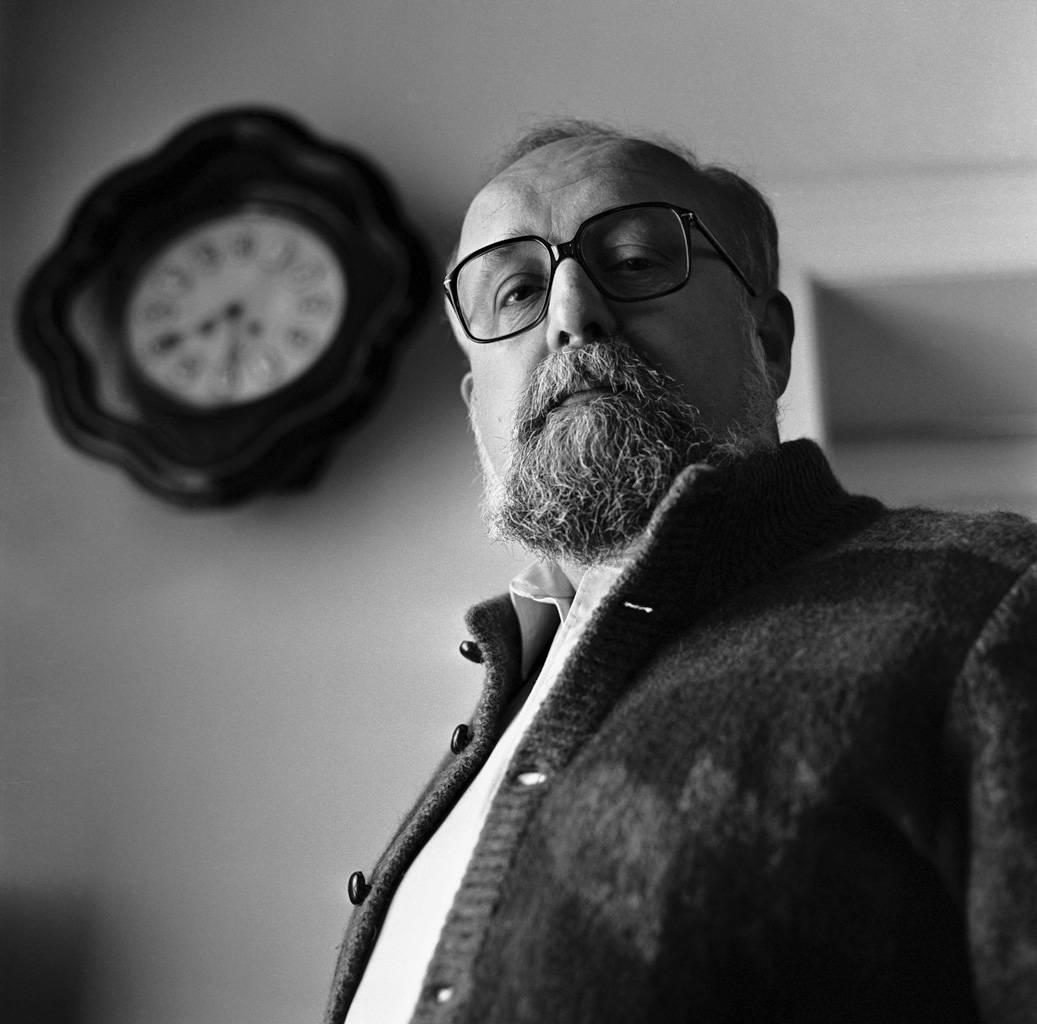
Polish composer Krysztof Penderecki (b. 1933) composed the next work without a title or inspiration in 1960, and only after he had written it and grasped how intense, emotional, and catastrophic the piece sounded did he give it a name: Threnody to the Victims of Hiroshima.
A threnody is a kind of song, hymn, or ode for someone who has died; it has a wailing quality and is often performed as a memorial. Hiroshima was the site of the first atomic bomb detonation in wartime, on August 6, 1945.
We looked at the score for this piece in class when we discussed graphic notation:
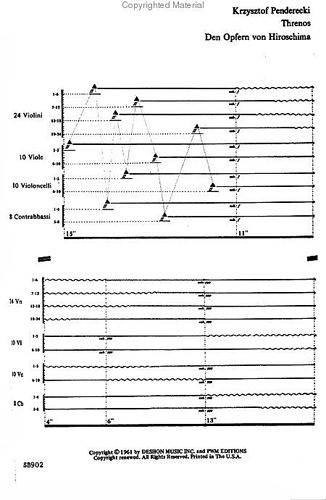
III. Music as protest: Giving voice to those not in power
Music played a large role in American anti-Vietnam War protests in the 1960s, expanding protesters’ message beyond just disagreement with a specific war to a broad, public polemic against all violence. Woodstock (August 15-18, 1969) was the capstone of ongoing protests by young, often white and middle class Americans against the use of violence generally, the Vietnam War specifically, and other ideas that they associated with “the establishment” (their parents’ and grandparents’ generation who were in charge of the social, political, and governmental structures that led the country into this morass in the first place) and all things the establishment stood for: the American Dream, being uptight or “square,” capitalism, anti-drug use, monogamy and heterosexuality, and—of course—anti-rock music.
The power of Woodstock and the music by rock and folk musicians who performed there lay in uniting a large group of people (400,000 attendees plus more who sympathized but couldn’t attend), articulating a message contrary to that espoused by people in traditional positions of power, and doing so in a way that was pleasant, persuasive, and enticing for a certain group: young people liked this kind of music and were drawn to it, whereas older Americans were not.
Performers included rock bands (Grateful Dead, Creedence Clearwater Revival, Janis Joplin, The Who, Jefferson Airplane, Joe Cocker, Crosby Stills Nash & Young), world music and fusion groups (Santana, Ravi Shankar, Sly & the Family Stone, Blood Sweat & Tears), and folk singers (Joan Baez, Arlo Guthrie).
Here’s Country Joe McDonald performing Vietnam Song which he wrote specifically for the festival:
Jimi Hendrix played the last set of the festival (approximately 130 minutes long), and his solo performance of The Star-Spangled Banner (the US national anthem) was particularly powerful because it was both an extraordinary display of his skill and creativity as a guitarist as well as a musical protest—it audibly and prominently distorted the melody and form of national anthem, and in the process re-purposed it from a bland, patriotic gesture into a personal claim: “There is room in America for me, for people like me, for my ideas, and for me to shape America into the country I want it to become.”
Coming on the heels of the Civil Rights movement (1919-68), the assassinations of Malcolm X (1965) and Martin Luther King, Jr. (1968), and in the middle of general dissatisfaction with the country, Hendrix’s performance made a powerful statement.
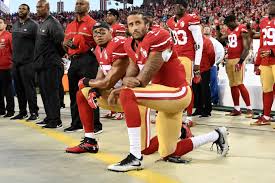
US football player Colin Kaepernick’s protest of the national anthem during the fall 2016 NFL season can be seen in the same context. As a racial minority in the US, Kaepernick listened to the anthem, saw the display of celebration and pride that it encompassed, and found those to be in dissonance with his experience as an American and the experience of other Americans. Rather than stand during the playing of the anthem at San Francisco 49ers games, he took a knee on the sideline, causing uproar for viewers who took his gesture to be a direct affront and insult to members of the military. The fact that his gesture could be interpreted so differently speaks to the powerful place that the anthem occupies in people’s imaginations and how strongly they associate the musical sounds with political ideas.
Kaepernick’s gesture also encouraged a broader re-examination of the Banner itself, which was written by Francis Scott Key following the Battle of Fort McHenry in Baltimore during the War of 1812. (It became the US national anthem in 1931.) The song has four verses, but we typically only sing the first in public events today. The third verse, which celebrates the deaths of slaves who were promised freedom by the British if they defected to the Royal ships in the harbor but were killed by American fusillade, makes the song problematic.
No refuge could save the hireling and slave
From the terror of flight or the gloom of the grave,
And the star-spangled banner in triumph doth wave
O’er the land of the free and the home of the brave.
Because the national anthem is a powerful symbol of the nation it represents, a person who questions it or seems to lack complete faith in that symbol can be interpreted as disrespectful, not just of the song but of the nation itself. This conflation is an example of false logic, obviously, but also the fact that such a reaction is possible shows just how effective the song is as a piece of propaganda. Kaepernick’s career seems to be over as a result of his protest, further underscoring the weight people ascribe to the anthem as a patriotic symbol.
IV. Music as war
Armies have been using music in battle as long as there have been battles. Drums keep armies in step, trumpet fanfares signal which units should advance, and the enemy can hear music of an approaching army long before they see them—allowing fear to set in if the approaching army sounds big and powerful.
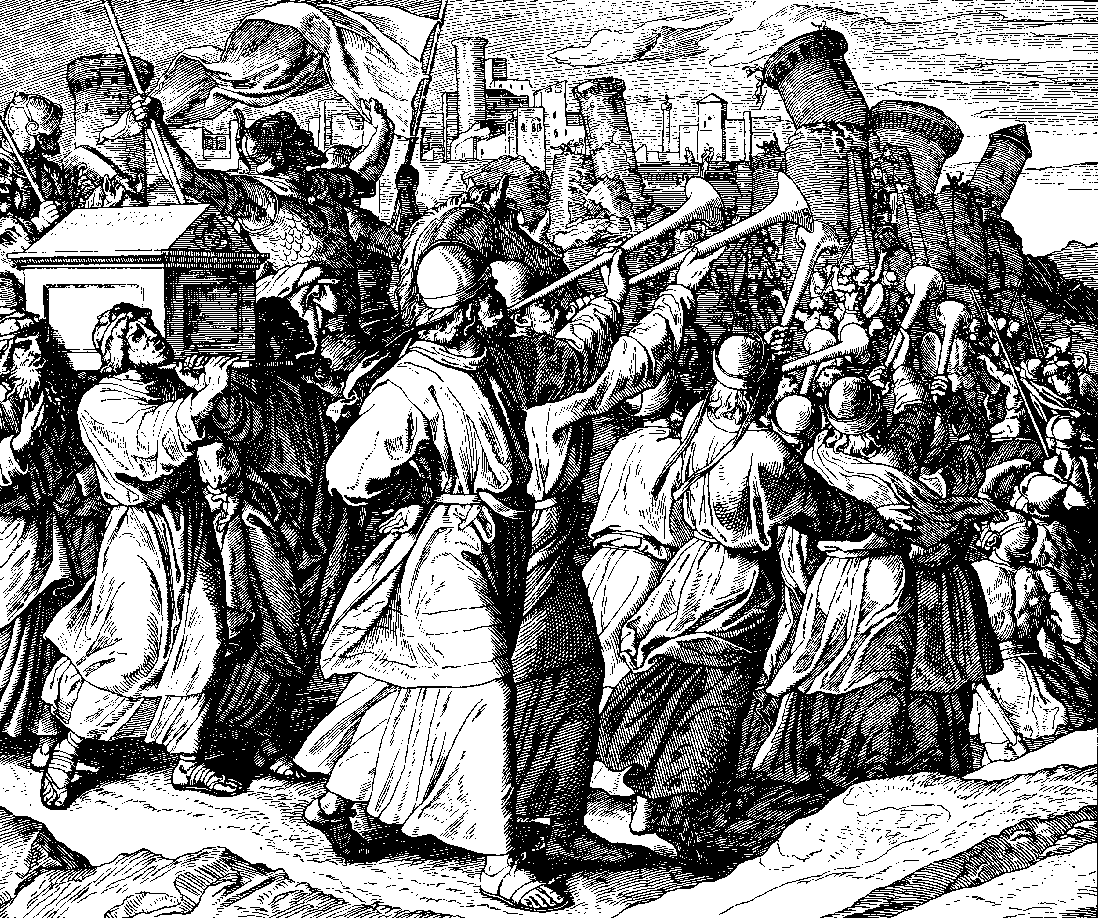
During the Ottoman-Habsburg Wars (1526-1791), Turkish armies made use of psychological warfare by having their Janissary bands perform outside the walls of a city under siege, psyching up their own troops and intimidating the citizens trapped inside. For Europeans, the Turks’ use of percussion (especially metallic percussion) and nasal-sounding wind instruments would have been frightening because of its unfamiliarity, and large, coordinated ensembles of musicians can have an intimidating effect. (Also recall that many of these percussion instruments migrated into the European orchestra and are part of its standard instrumentation today).
Music as psychological warfare continues today, and Jonathan Pieslak’s book Sound Targets: American Soldiers and Music in the Iraq War (2009) explores how American troops and interrogators typically use heavy metal and rap to pump themselves up for battle and to rattle prisoners during interrogations. I strongly recommend that you read Alex Ross’s excellent article “When Music is Violence” in The New Yorker (2016), which summarizes Pieslak’s book and other instances of music being used to inflict harm on others and shows how broadly you can approach the idea of listening to music: Ross – When Music Is Violence – The New Yorker
Final thoughts
It’s difficult to talk about war without also thinking about censorship, the control of the spread of ideas. Music is a powerful means of conveying messages, and the potential flip side of this power is the rejection of that message (and the messenger/musician) in the form of boycotts, commercial failure, and censorship.
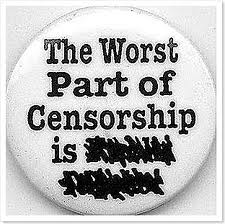 Art is a way to express ourselves at our best, or at our most profound, or ourselves in our best image. And it’s a way for us as listeners to explore, empathize with, and experience other people’s lives and perspectives. The arts and literature are among the first targets of tyranny and censorship because they open people’s eyes – to different ways of life, to different perspectives, to alternative realities. We humans are by nature inquisitive creatures, and when confronted with something new, we ask ourselves how it could exist, what has caused it to come into being. We imagine what sort of person might have come up with a piece of art, what kind of world a person who writes a certain song could live in. And if we start imagining other people and other perspectives, we might be tempted to change our own, and that is the wonderful danger of art.
Art is a way to express ourselves at our best, or at our most profound, or ourselves in our best image. And it’s a way for us as listeners to explore, empathize with, and experience other people’s lives and perspectives. The arts and literature are among the first targets of tyranny and censorship because they open people’s eyes – to different ways of life, to different perspectives, to alternative realities. We humans are by nature inquisitive creatures, and when confronted with something new, we ask ourselves how it could exist, what has caused it to come into being. We imagine what sort of person might have come up with a piece of art, what kind of world a person who writes a certain song could live in. And if we start imagining other people and other perspectives, we might be tempted to change our own, and that is the wonderful danger of art.
-Dr. J.
Some questions to get the conversation started
- What human experience(s) do you think music is unable to capture or portray?
- If you were a musician captured in war, what kind of music would you be inspired to create?
- What aspect of Ross’s essay did you find to be the most interesting?
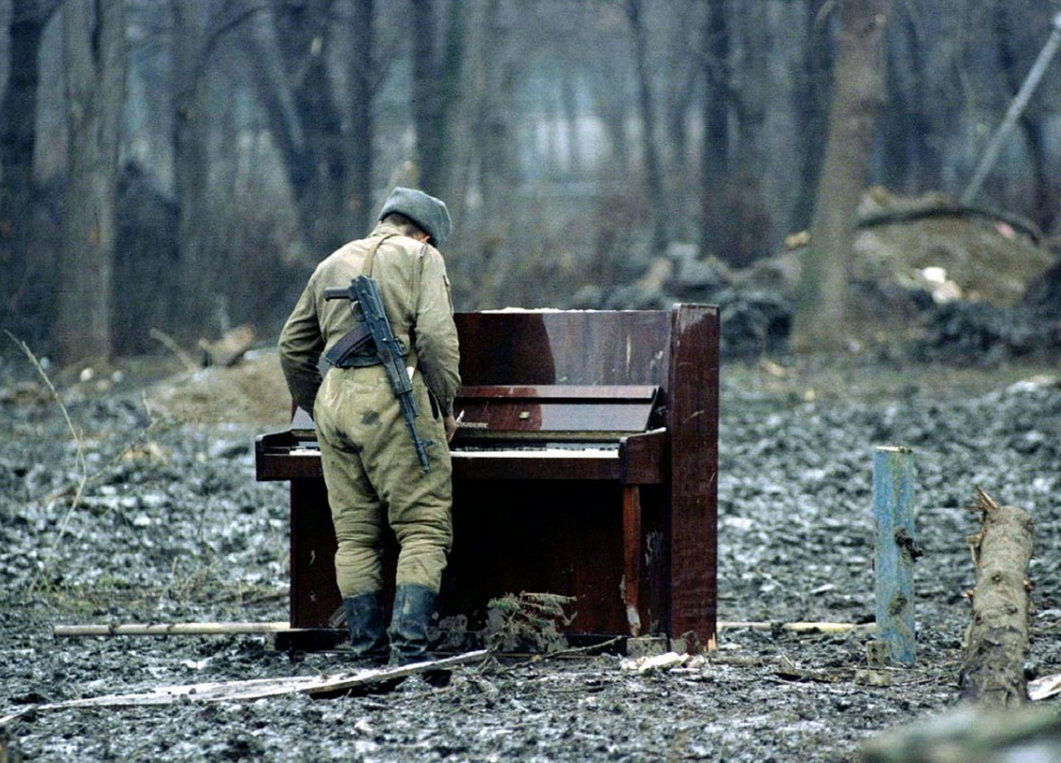
The human experience that music is unable to capture or portray is things that happened in cases with abuse or death. I think what I meant by this is in terms of pictures that do not want to be shown because the experience is really bad. Music can’t really capture success, because when the instruments are flowing in an upbeat, it is because somebody is happy or feeling positive that day. I think that music can’t capture the human’s thought process with what is going on in that person’s brain. Music cannot really portray the unknown, mystery what we don’t know like how the world started or like science but there are some flows of melodies that sound startled, confusing, interesting.
If I was a musician captured in war, the music that I would be inspired to play is positive music. For example, the famous song known as ” We are the Champions” by Queen in 1977 would be that inspiration of defending our land. We unified would not let other places or people bully us, tell us what to do, or even try to take over our land. At a time of need being really desperate or we feel as if to just give up, we don’t even though their are times of grief because a lot of people had died or were injured. This music would fit because it is that momentum which drives that comeback of this nation winning in the history books but thinking with a clear positive mindset.
The aspect of Ross’s essay that I found interesting is his vocabulary because he used the words so fluently. This also assisted him in his sentence structure because the sentences sound really good with his analysis of the main idea. Ross gets directly to the point and answers how the piece of music he listened to had an impact to him. Ross also gives the outside view where he brings in what other people would have though about this performance. Ross was giving an idea of mystery, posing questions to us and himself but he had a really intelligent answer for that question. He answered those questions in a fluent fashion, with really good interpretation, connection.
LikeLiked by 1 person
You have made a lot of great points. Your opinion about what human experiences with music that is unable to capture and portray are very true. I liked how you mentioned about pictures that displays that kind of experience as you said was real awful. Another thing I wanna add is how you said music can’t capture a humans thought process in what is going on in the brain. That is a great analysis that we should all happen to believe.
Also I love the choice of music ” We are the Champions” by Queen when you told if you were a musician captured in war. Positive music always turns out to be the music that can keep us motivated and happy. Even a winning mindset. You made a great example when it came to about having inspiration that can help us defend our land when you were talking about your chosen music. Your last sentence in your second paragraph was really discussed well about how your song has a momentum when it came about a comeback of a nation winning.
Lastly I liked what aspect that you found interesting about Ross’s piece. While I was reading it myself he has indeed had very interested vocabulary which was nicely used. Even the way he was answering every question in a honest way. Yes Ross did had a lot of good references of songs that had an impact to him. His connections to his questions were really perfect for his readers to understand.
LikeLike
i really appreciated reading your comment and i like how you brought success into it . however, i have to ask, do you think those memories of violence and death will not come back to affect his work.
LikeLike
I disagree with your point on music not being able to capture certain emotions or being able to express the anguish and turmoil of a bad experience such as abuse or death. Music is an art of expression just like dance and painting are and I would even say that it is easier to capture those feelings and emotions in Music and painting more than with another arts like dancing. Remember that music includes song and lyrics are the product of the human mind and people compose lyrics based on their life experiences and great artists do a great job at articulating feelings, emotions and experiences.
LikeLike
This is so interesting how u tried to connect music with brain. But i think music is meant to be a (mood changing device). In addition, I really like the story of a composer Olivier messaian that he was in a camp. And a guard recognized him and he made a piece over there with limited resources and equipments. This is so amazing. And a band singing a song against Vietnam war. That why we r fighting.
LikeLike
In what I see human experiences that music is unable to capture or portray is hate and anger. The reason is becuase both show that they are extremely difficult. Even when it comes with war and of course violence. Music and violence isn’t always straight forward. At times music is used to carry messages through a lot of communication.
If I happen to be a musician captured in war I would be inspired to play is happy music. A good example of a happy song would be “Happy” by Pharrell Williams in 2013. Instead of feeling angry and have hatred with violence why can’t we all just be grateful for the lives that we have instead of being negative which can lead to anger.This kind of music would fit perfect because it mentions that you should always be a happy person. The meaning of it sounds like you should not let bad situations bring your happiness down. While it continues to mention to stay positive despite anything that can possibly bring you down.
In Ross’s essay the aspect that I found interesting about it is the way he was explaining about that music is violence as he gave his take on it. He mentioned that ” We resist evidence suggesting that music can cloud reason, stir rage, cause pain, even kill.” He displays very honest claim that interested me when he mentioned this in his essay. Also another thing he said which I agreed about was ” Although music has a tremendous ability to create communal feeling, no community can form without excluding outsiders.” in which I find very true.
LikeLike
several of your points were really interesting but i have an issue understanding the why you think that “happy” music would be the type of music someone witnessing war ? i would just like to know how would it come to mind from someone like that.
LikeLiked by 1 person
The reason that I said that is because instead of focusing on the negative why can’t we be more focused positive instead of all of this violence that comes with war why do we have to be in war for what are we trying to get out of it. It would help look at things in non scary way instead of the regular kind.
LikeLike
I find your perspective on this interesting. I don’t understand how you come to the conclusion that music cannot capture anger or hate because I clearly see those and other emotions being expressed very accurately by music. Remember that music is not just instrumental but also includes songs and even instrumental music conveys emotions quite effectively. Also, I understand where you are coming from when you say that if you were a prisoner of war that you would compose happy music but I find that even composing any type of music when you are being held prisoner in such dire situations to be such a difficult task let alone be inspired to compose a happy music piece.
LikeLiked by 1 person
Music cannot capture anger and hate because music is supposed to help you turn your negativity into positively this is the reason for that explanation. My bad for the confusion on that part I should of described it in a understandable way.
LikeLike
i totally agree with you , because people always turn to music for a positive escape
LikeLiked by 1 person
I agree with what you are tying to communicate with me.
LikeLike
In addition, it also carries tale of a real hero’s. During the British rule in India. A lot of composers make songs about the revolution and revolutionaries. There main focus use to be people like saheed Bhagat singh, Saheed Raj Guru, Saheed Sukhdev and, Saheed Udam Singh. Due to lack of modern tech and illiteracy people use to play these compositions just in small gathering because of which a lot of them was never recorded. But, this is just an example. Also, as u said may be some one didn’t record it under the feeling oh hate
LikeLiked by 1 person
I really liked your point of how you think that music can’t portray negative emotions such as hate or anger, but I believe that is is possible because many people do it. They put their negativity into the lyrics of the music and with a harsh sound in the background, the music that they make portrays their negativity and emotions such as hate and anger.
However, I do agree with you that if I was caught in ware, and if I was a musician I would also make happy music because to me, it would give me hope every time I would listen to it that one day I would be free again. Another reason would be the same as yours, that I would be grateful for being alive>
LikeLiked by 1 person
I understood your point of view when trying to compare the” Happy ” song to people’s lives and being grateful. Why That song in particular? Why not a genre like gospel that gives people hope and faith ?
LikeLiked by 1 person
In how I view things I thought happy songs can help look at things in a not to horrible situation in which I believe. I don’t know much about gospel but I appreciate that you have mentioned that to me as I will get more into it but overall I find that happy can fuel a person self esteem about them.
LikeLike
Music is art and all art human brings out to this world is either response to an event or important memory or subject to bring a significant change. someone witnessing death like in the war will most likely feel the need to express themselves in their work of art. i don’t think there is any experience that really matter that is unable to portray. even if it’s locating in the subconscious part of the brain you might not be aware of expressing it but it will somehow reflect on the art they make. if i was a musician captured in the war i would definitely create pace music, that attracts loneliness, violin an flute would be my main instruments.
LikeLiked by 1 person
I agree with you. Music can capture and express everything a person Is feeling and or experiencing, which becomes art that Is created for others to enjoy.
LikeLiked by 1 person
@sebastien509- I agree with you that music is a form of art that gives us the ability as people / musicians to express ourselves in order to interpret and send a message to the audience that having music and violence should not be tolerated. Also, as a musician caught in the war, I would have done the same thing as you by creating sad and miserable music to explain that there is no escape in the war and deal with the pain and suffering as long as possible until the end.
LikeLiked by 1 person
This discussion was really an eye opener for me. As an aspiring singer and music aficionado, I’ve always thought of music as a positive thing; as an art just like painting. I never really gave thought to the aspect that music could be used for evil other than songs that endorse racism, inequalities and violence but I always thought that such songs never become widespread because they are shun by mainstream society and so have limited effect. However, after reading this online discussion and Ross’ article, I realized that music can be weaponized to torture, torment and manipulate the enemy into taking certain actions including surrender.
It was more interesting to learn how music plays an integral part in all aspects of war from rallying the troops for war, to getting them desensitized to violence, to using exhilarating band music to install patriotism and nationalism to the civilian population in an effort to get them to support a war effort. Music is simply a powerful tool, and like many other powerful tools, it can be used for good or bad depending on the person’s morals.
Aside from this, I was also quite impressed by Olivier Messaien’s story of being a Word War II prisoner of war held by the Nazis and how he could compose a piece under such circumstances and with few instruments and players. I really admire him for having the capacity to compose a beautiful piece with all the turmoil and stress of being held prisoner and not knowing if he would be killed. It goes to show how people react differently to situations. In his case, he sought refuge in his trade as a musician to preoccupy his mind with something positive while being held captive. I can’t help but to also admire the nazi soldier who recognized Olivier Messaien and actually supply him with writing material, instruments and locating other musicians so that he can compose music. I don’t understand what would compel a nazi soldier to take that noble act. Perhaps it was because Olivier Messaien was not Jewish and he felt that having Olivier Messaien compose and play music would control the prisoners and also entertain the soldiers.
LikeLiked by 1 person
agreed! I was also impressed with Olivier Messiaen’s story being a prisoner when you think the world might end must have been a stressful and scary situation to be in. He was able to find other musicians and create a piece of work, it’s very admirable. I think Nazi soldiers saw him as entertainment which is why they supplied him with tools.
LikeLike
Music is a form of art ,music evoke all types of emotions happiness , sadness etc.. if i was a musician captured in a war i would be inspired to write hopeful music. Simply because happy music would give me hope , hope that i will be released and see my loved ones . Also i would probably write like one or two sad songs just to show the hardships i went trough , but overall happy music to show how i overcame my obstacles and lived through it and gained my own victory
LikeLiked by 1 person
I agree with you I would also create hopeful music because this is the time when it’s most needed. Giving hope to those who need it and feel like it tough going through these times.
LikeLiked by 1 person
@madgp971- I enjoyed how you used mix of emotions like happiness to connect to problems you faced in your life that got resolved. Although, how does “happiness” in music break through your barriers of being sad? Provide an example.
Also, why does “happy music” make you victorious? Please elaborate.
LikeLiked by 1 person
I agree with you as well that writing about hope is good because its when most people need it. And I also liked how you mentioned that it will give you hope to be released and see your loved ones. Most people don’t often think how much people at war need that hope and how much it affects them.
LikeLike
Music can catch every emotion I was incorrect.I agree with madgp971 that you need that inspiration to comeback, that you have a chance to do something. You cannot just leave the other side of the story untold so you need to show the trials and tribulations that you went through. You also have to show half and half where the one person says something, another person says something, and then there is the truth. There would be that drive, motivation, dedication, etc.
LikeLike
Music is everywhere, and if I was captured in war, I would most likely create music to put you in a happy mood because then it would give me hope that one day I might be free. Some might create music that would portray their emotion because usually music comes within and when you create music most of the time it can relate to what your feeling which in that case would create not so pleasant sad music.
One thing which I found really interesting and caught my eye in the essay was the fourth part “Music at war”. It seemed really interesting because I didn’t know that music was used in the military as well. it was also interesting to find out how trumpets were used to signal and how troops used music to get themselves ready for war.
LikeLike
I also found it interesting that they used trumpets for signals and for music. It makes me think of how in movies they sometimes showed how in the morning they would wake up some troops with a trumpet sound.
LikeLike
Music does not capture tiredness. I have never heard tiredness expressed in music but yet still it is a feeling that most people experience. In reality, a person can be tired and rest, but on the other hand, a person could be tired and still push themself to do what needs to be done. I think Music does not capture ambition. Ambition is something deep within someone’s mind which drives them, and I think it cannot be expressed in a musical format but it is something people tend to possess when they set goal to accomplish, whether big or small.
LikeLike
I think music can capture tiredness. Music can capture everything as long as you are willing to understand and interpret it. You are right about ambition. It is something that is inside of you originally, but music can wake it up.
Music, like every other type of art can just remind you/ teach you/ make you think about things you have not consider before.
LikeLike
Music is very powerful because it expresses ones emotions and create movements. As I read the article it showed how music can be used to express what someone is going through during a hard time. But I feel like you can never capture all the emotions the person that created the piece of music was going through. It’s not the same because you did not go through the experience that made them create this piece of music. But the
lyrics and the sounds do help understand what the musician was going through and gives a glimpse Of what occurred. I do agree with the fact that music unites us during hard times. It can be the same group of people that are going through tough times and now feel like they are not alone. Of course there is music that makes you happy and sad it all depends on what the listener wants to hear.
LikeLike
I totally agree with “Music is very powerful because it expresses ones emotions and create movements.” “But I feel like you can never capture all the emotions the person that created the piece of music was going through.” I believe that it can capture up to some point of understanding kind of like a photo to actually being there in person it’s a new experience.
LikeLike
I agree with you however I think music cannot transmit the real feelings that a person experience because sometimes we feel more than we think and it cannot be captured in music.
LikeLike
In war i would be inspired to create music in the form of chants because that type of music help people to focus. People could chant and focus on fighting, or chant and focus on staying alive or even chant the reason why they fighting.
LikeLike
I personally think that music is a art that CAN capture or portray every emotion or feeling the artist wants the listeners to feel in the lyrics, the beats, the instrumentation used etc. We can make out and understand the raw emotion and history of the piece of music. IF i was captured at war i would probably make music about positive topics due to my situations and about freedom and hope.
LikeLiked by 1 person
I completely agree with you that artist capture what they feel into their music!
LikeLike
Well a freedom and hope music if capture can be great but even if we could in that situation i believe more about the feeling coming out of it. So i think grief/sad tone of music would appear in mixed of the hope of freedom.
LikeLike
Definitely agree, i think it people would find comfort with music about freedom and hope.
LikeLike
I agree that lyrics to music plays a big part of portraying something because it goes straight to the point.
LikeLike
Music is able to express anything, a person’s thoughts and feelings or an experience. Learning that music can be used as a political way is not new news but using it during the war as a propaganda method is something complelty new to me. Listening to all the music video really shows you how much Music influences what is happening during a specific time era. Other than expressing emotion and all, it can not express what is going on in a person’s mind, their train of thought. A composer puts time and effort into expressing what they think and if others would understand what they are trying to portray. During war time many things are happening, people are getting sent off to join the fight, others staying back and waiting for their safe return. Gospel music would be the music that I would personally would want to create. The faith that things could get better is always a hopefully feeling for the mind and soul.
LikeLike
I don’t think there is any emotion that music can’t capture or portray. Music evokes various emotions and those emotions are what we hear listening to music. If i was caught in war i would make sad/happy pieces of music. You wouldn’t really know whether it’s sad or happy or even both.
LikeLike
I agree. I strongly believe that music never failed to portray emotions and people’s thoughts. It has always been a great apparatus to help lay out the ideas of a person when their having a hard time laying their ideas in words.
LikeLike
I strongly believe that music can capture almost everything but death. This the only part where music can truly describe it since it’s always unknown to what happens at that time to whichever person since it is out of our imagination. Music has a strong point on sending a message and showing a feel to the struggle that people have but death is still something that can’t capture. If i have to give an example is that even in movies of war or any other when important death happens it’s all silence until the music start playing a sad tone for the death but nothing when it happens.
LikeLike
totally agree with you I think that death is something that music cannot transmit
LikeLike
What human experience(s) do you think music is unable to capture or portray? I think music can capture a lot of the human experiences but I don’t think it can capture or portray detail. A written paper with the event’s of war would have more detail then someone singing about it. unless the singer was their personally and saw the war or battle kind of like Francis Scott Key. If I was a musician captured in war, I would make a instrumental piano song, just like the movie “The Pianist”
LikeLike
I believe that music is able to portray many human experiences and emotions but I think it’s hard for music to portray stress. Although in most situations, there can be intense music when there’s stress in a movie, I don’t think that it gives the viewers a feeling of how someone feels. If I was a musician in war, I would be inspired to write music that is calm and intense because it captures the calm moments of war, before the sound of guns and bombs accuses. Something similar to Penderecki. What I found interesting in Ross’s essay is that he mentioned that “when music is applied to warlike ends, we tend to believe that it has been turned against its innocent nature.'” I found this interesting because music in warlike ends becomes something filled with fear or with someone feeling nervous and with the question of what happened next.
LikeLike
Music in war can be used as a weapon and as a peacemaker. War is one of the most difficult times for countries and individuals to go through. In this discussion, we see how music can be used in war. If I were a musician captured in war, I would be inspired to create heroic/hopeful music. I would incorporate the fallen troops and give hope for a better life after the war. I would do this, to try to steer away from the horror war leaves behind and focus on embracing the brave souls that were lost.
LikeLike
I agree. There are a lot of music that somehow change the pace of war, Especially those music that advertise peace and serenity. But still it’s a war. In a war there could be like “psychos” listening to like hard rock music that could fortify their anger.
LikeLike
I find it extremely interesting how music can be two sides of the same coin. It can be used to move and inspire people, as well as paralyze, and inflict all encompassing despair upon its listeners. Using your music to help heal the wounds that are placed upon a country trying to readjust to life after a war is a noble way to use your power to move people’s hearts.
LikeLike
What human experience(s) do you think music is unable to capture or portray?
I think music is unable to capture some human experiences likes the fear that humans experience at that exact moment that the situation happened. We can transmit a version of it but not the real one and I think is difficult that music transmits death this feeling is something that humans experienced during their journey but It is unable to be expressed in a way we can listen and understand that is the death.
LikeLike
Music has been a great sanctuary for the troubled and I believe music has never failed to portray or unable to capture emotions. Music gets to express the feelings or emotions that one is unable to express in words. If I was a musician captured during a war, I would make hopeful music. Music that could give me the courage to carry on and fight. In times like that, hopeful music would come in handy not just for me, but for all the people that listens. I believe when in a bloody war after where you can only hear the ricochets of bullets, loud bang of tanks, and continuous gun shots, everything can be surpassed by a tune of music and you could feel at least a little bit “safe”.
LikeLike
The human experience I think music is unable to capture or portray is barely mourning for a friend or family member who died during these historical events. What I mean by this is people that got murdered in genocides because those that barely mourn find ways to keep themselves alive. For example, Olivier Messiaen composed music with fellow musicians to prove Nazi guards they were a valuable asset to them. If I was a musician captured in war, the type of music I would be inspired to create is patriotic music from my homeland. The reason behind this is because to show Nazi soldiers that the music I perform is as powerful and significant as their own music. Last, but not least, the aspect of Ross’s essay I found to be most interesting is how American federal government used “torture” and “harassment” against Iraq War soldiers by playing music pieces that they hated in order to suck confessions out of them to admit they committed war crimes.
LikeLiked by 1 person
I believe almost all great music was inspired by pain, danger, horror, and tyranny. Violence can inspire music and music can inspire violence. A lot of songs has been dedicated to war and oppression of some sort.
As a person who has lived in the post-soviet state, I can say that most of my country’s and surrounding’s music are completely based on violence.
Does anyone think that something should be censored? and if so, what?
LikeLike
If I were a musician that had been captured during war, I would resort to making music that captures the despair and monotony of being captured. The genre would most likely be rap, because rap is a genre that’s good at conveying emotion, especially a struggle that a person is going through. listeners would be able to relate to how it felt to be imprisoned, and how that changed my outlook on humanity.
LikeLike
If I were a musician that’s was caught captive during war I will definitely make positive music due to all the negative things that war brings. I would try to make a impact not just with war but with positive Happy music things that can make a change in life or that can bring peace into the world.
LikeLike